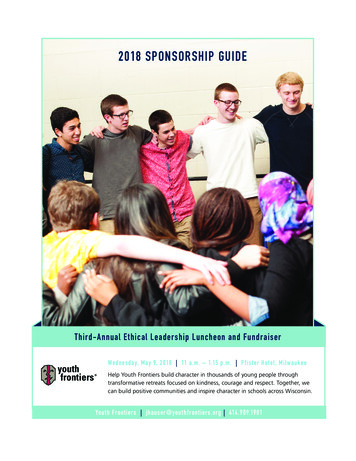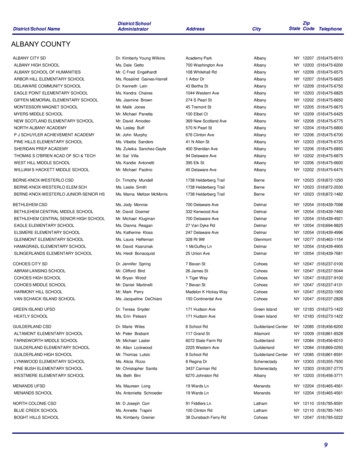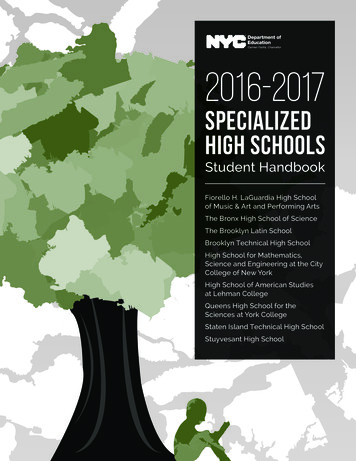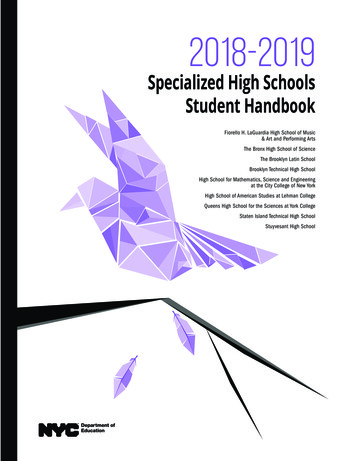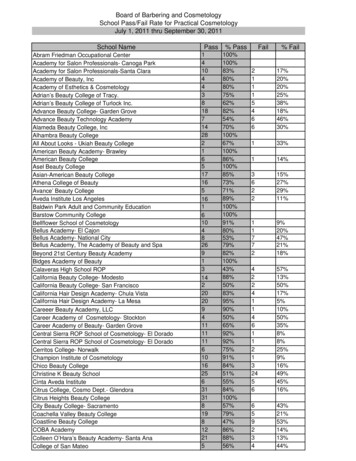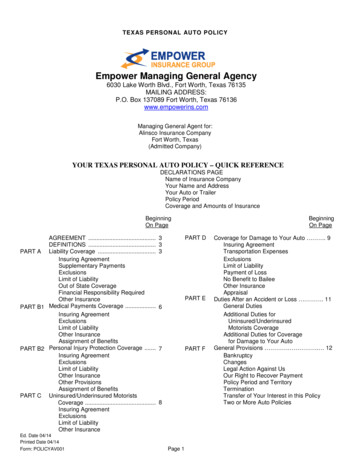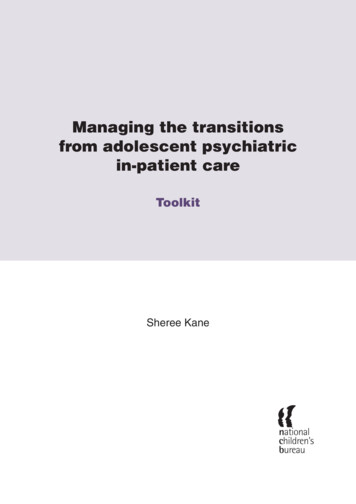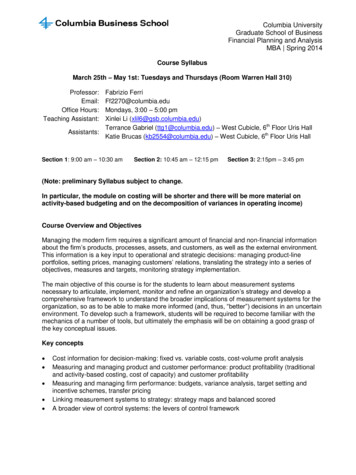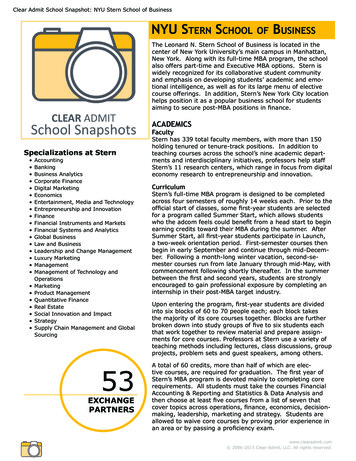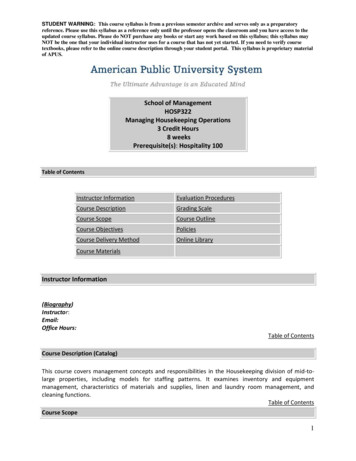
Transcription
STUDENT WARNING: This course syllabus is from a previous semester archive and serves only as a preparatoryreference. Please use this syllabus as a reference only until the professor opens the classroom and you have access to theupdated course syllabus. Please do NOT purchase any books or start any work based on this syllabus; this syllabus mayNOT be the one that your individual instructor uses for a course that has not yet started. If you need to verify coursetextbooks, please refer to the online course description through your student portal. This syllabus is proprietary materialof APUS.School of ManagementHOSP322Managing Housekeeping Operations3 Credit Hours8 weeksPrerequisite(s): Hospitality 100Table of ContentsInstructor InformationEvaluation ProceduresCourse DescriptionGrading ScaleCourse ScopeCourse OutlineCourse ObjectivesPoliciesCourse Delivery MethodOnline LibraryCourse MaterialsInstructor Information(Biography)Instructor:Email:Office Hours:Table of ContentsCourse Description (Catalog)This course covers management concepts and responsibilities in the Housekeeping division of mid-tolarge properties, including models for staffing patterns. It examines inventory and equipmentmanagement, characteristics of materials and supplies, linen and laundry room management, andcleaning functions.Table of ContentsCourse Scope1
STUDENT WARNING: This course syllabus is from a previous semester archive and serves only as a preparatoryreference. Please use this syllabus as a reference only until the professor opens the classroom and you have access to theupdated course syllabus. Please do NOT purchase any books or start any work based on this syllabus; this syllabus mayNOT be the one that your individual instructor uses for a course that has not yet started. If you need to verify coursetextbooks, please refer to the online course description through your student portal. This syllabus is proprietary materialof APUS.Students will receive an introduction to Managing Housekeeping Operations principles including thelatest concepts and practices. Additionally, students will discuss issues of small and large companies, ebusiness, and other important issues to managers in the 21st century. Students will gain anunderstanding of key Housekeeping Inventory issues, maintain a functional focus and review currentpractices in the private, public, and military sectors within the hotel industry.Table of ContentsCourse ObjectivesAfter successfully completing this course, students will fulfill the following Learning Objectives (L.O.):1. Define the basics of Housekeeping management functions, principles, and explore idealcharacteristics of a good manager as applied to individuals in small and large hotel organizations2. Examine the importance of Housekeeping Management knowledge when viewing fundamentalorganizational requirements and recognize Housekeeping inventory skills required of managers3. Analyze the impact of poor management/leadership and the impact it can have on underlyingorganizational success4. Compare and contrast various Housekeeping inventory management methods or approaches5. Explore, explain, and understand inventory and environmental planning and its use; howHousekeeping Inventory management tenets can be applied to initiation of new products andservices; and, how to evaluate housekeeping practices6. Distinguish varying problems from a Housekeeping management standpoint that can impact anorganization7. Compare and contrast problem solving techniques and processes; and their applications tomanaging housekeeping operations8. Explore and examine the origins, key elements and applicability of Housekeeping ManagementTable of ContentsCourse Delivery MethodHOSP 322 Managing Housekeeping Operations is a course delivered via distance learning will enablestudents to complete academic work in a flexible manner, completely online. Course materials andaccess to an online learning management system will be made available to each student. Onlineassignments for the week are due as required by the instructor but most assignments for the week aredue no later than Sunday evening of that week. Assignments include Forum questions (accomplished ingroups through a threaded discussion board), quizzes, and individual assignments (submitted for reviewby the Faculty Member). Assigned faculty will support the students throughout this eight-week course.Table of ContentsCourse Materials2
STUDENT WARNING: This course syllabus is from a previous semester archive and serves only as a preparatoryreference. Please use this syllabus as a reference only until the professor opens the classroom and you have access to theupdated course syllabus. Please do NOT purchase any books or start any work based on this syllabus; this syllabus mayNOT be the one that your individual instructor uses for a course that has not yet started. If you need to verify coursetextbooks, please refer to the online course description through your student portal. This syllabus is proprietary materialof APUS.Required Course Textbook:CourseHOSP322AuthorsNitschke, Aleta &Frye, WilliamBook TitleManaging HousekeepingOperations, 3rd EditionPublication InfoAmerican Hotel &Lodging AssociationISBN978-0-86612366-5Required Readings:See Course OutlineAdditional Resources:In the Course Tools folder there are additional course articles, and up to date APA handouts.WebsitesIn addition to the required course texts the following public domain Websites are useful. Please abide bythe university’s academic honesty policy when using Internet sources as well. Note web site addressesare subject to change.Site NameThe OWL at PurdueAPA Style HomepageWebsite w.apastyle.org/index.aspxAmerican Hotel & Lodging Associationhttp://www.ahla.orgAmerican Management Associationhttp://www.amanet.org/Table of ContentsReading Assignments: The textbook and additional journals as assigned in the Lessons and ForumsWeekly Forum Assignments:Quality initial responses to the discussion board postings should include the following three elements:(1) Your original opinion or thought about the question(2) Evidence that backs up your point of view(3) Demonstration that you are connecting the dots, that you are using critical analysis skills.Two ways to do this are by providing examples that relate to your life/work or providing ananalogy that relates to the discussion topic.Substantive responses to classmates should include at a minimum the following three elements:(1) Your answer or item of interest relating to another student's posting(2) Evidence or facts or analysis that leads you in a new direction(3) A reference to the post to which you are referring.Your first post for all Forum Questions MUST be made by Thursday of each week!Homework Assignments:There are weekly written homework assignments, in accordance with the topic of study.3
STUDENT WARNING: This course syllabus is from a previous semester archive and serves only as a preparatoryreference. Please use this syllabus as a reference only until the professor opens the classroom and you have access to theupdated course syllabus. Please do NOT purchase any books or start any work based on this syllabus; this syllabus mayNOT be the one that your individual instructor uses for a course that has not yet started. If you need to verify coursetextbooks, please refer to the online course description through your student portal. This syllabus is proprietary materialof APUS.Written communication must be free of errors that detract from the overall message.Length of papers: 3 – 5 double spaced typed pages (Not including the cover page and reference page),or as specified in detailed individual assignment instructions.Assignment labeling: Assignment files will be labeled with the following format:Student Name Assignment Name Course Identifier Example:FirstnameLastname AssignmentOne HOSP101 or Lastname AssignmentOne HOSP101Formatting:Resources and citations are to be formatted according to APA (6th Edition) style and formatting.Documents are to be MS Word documents.QuizzesQuizzes are completed online and composed of multiple choice, true/false and short answerquestions.Graded AssignmentWeek 1 - Forum Week 1% contribution toFinal Grade5-Assignment 15-Quiz Week 13.33Week 2 - Forum Week 2-Assignment 2-Quiz Week 2Week 3 - Forum Week 3553.335-Assignment 35-Quiz Week 33.33Week 4 - Forum Week 4- Assignment 4Week 5 - Forum Week 5555-Assignment 55-Quiz Week 53.33Week 6 - Forum Week 65-Assignment 65-Quiz Week 63.33Week 7 - Forum Week 7-Assignment 7Week 8 - Forum Week 85554
STUDENT WARNING: This course syllabus is from a previous semester archive and serves only as a preparatoryreference. Please use this syllabus as a reference only until the professor opens the classroom and you have access to theupdated course syllabus. Please do NOT purchase any books or start any work based on this syllabus; this syllabus mayNOT be the one that your individual instructor uses for a course that has not yet started. If you need to verify coursetextbooks, please refer to the online course description through your student portal. This syllabus is proprietary materialof APUS.-Assignment 85-Quiz Week 83.33Total100Grade InstrumentsForum Posts #1-8Assignments/Case Study/ProjectsQuizzesTotal% Points404020100Table of Contents8 – Week Course ssignment(s)1, 8Read Chapters 1 -2Week #1 reading asassignedForum #1Assignment # 1Quiz #1 (Chapters 1 - 2)1, 2, 6, 7, 8Read Chapters 3 - 4Week #2 reading asassignedForum# 3Assignment # 3Quiz # 3 ( Chapter 5 - 6)1Introduction,Housekeeping Ops andEnvironmentalManagement2Planning and Organizingand Human ResourceIssues3Managing Inventoriesand Controlling Expenses2, 3, 5, 7Read Chapter 5 -6Week #3 reading asassigned4Safety and Security andOn-Premises Laundry1, 3, 6, 7Read Chapters 7 – 8Week #4 reading asassignedForum # 4Assignment # 4 (FIELD TRIP)5Guestroom Cleaning1, 3, 7, 8Read Chapter 9 Week#5 readings asassignedForum #5Assignment# 5 (FIELD TRIP)Quiz Week 5 (Chapters 7 – 9)6Public Area and OtherTypes of Cleaning,Ceilings, Walls, Furniture,and Fixtures1, 2, 3, 7, 8Read Chapter 10 - 11Week #6 readings asassignedForum # 6Assignment #6Quiz Week 6 (Chapters 10 – 11)Forum #2Assignment # 2Quiz # 2 (Chapters 3 – 4)5
STUDENT WARNING: This course syllabus is from a previous semester archive and serves only as a preparatoryreference. Please use this syllabus as a reference only until the professor opens the classroom and you have access to theupdated course syllabus. Please do NOT purchase any books or start any work based on this syllabus; this syllabus mayNOT be the one that your individual instructor uses for a course that has not yet started. If you need to verify coursetextbooks, please refer to the online course description through your student portal. This syllabus is proprietary materialof APUS.7Beds, Linens, Uniforms,Carpets, and Floors8Bathrooms and Vanities1, 2, 7, 8Read Chapters 12 - 13Week #7 readings asassignedForum # 7Assignment #71, 2, 3, 6, 7, 8Read Chapter 14Week #8 readings asassignedForum # 8Assignment # 8Quiz Week 8 (Chapters 12 – 14)Please see the Student Handbook to reference the University’s grading scaleTable of ContentsPoliciesPlease see the Student Handbook to reference all University policies. Quick links to frequentlyasked question about policies are listed below.Drop/Withdrawal PolicyPlagiarism PolicyExtension Process and PolicyDisability AccommodationsCitation and Reference StyleAttention Please: Students will follow the APA Style as the sole citation and reference style used inwritten work submitted as part of coursework to the University. Assignments completed in a narrativeessay or composition format must follow the citation style cited in the APA, 6th Edition.Late AssignmentsStudents are expected to submit classroom assignments by the posted due date and to complete thecourse according to the published class schedule. As adults, students, and working professionals, Iunderstand you must manage competing demands on your time. Should you need additional time tocomplete an assignment, please contact me before the due date so we can discuss the situation anddetermine an acceptable resolution. Routine submission of late assignments is unacceptable and mayresult in points deducted from your final course grade.NetiquetteOnline universities promote the advancement of knowledge through positive and constructive debate –both inside and outside the classroom. Forums on the Internet, however, can occasionally degenerateinto needless insults and “flaming.” Such activity and the loss of good manners are not acceptable in auniversity setting – basic academic rules of good behavior and proper “Netiquette” must persist.Remember that you are in a place for the rewards and excitement of learning which does not includedescent to personal attacks or student attempts to stifle the Forum of others.6
STUDENT WARNING: This course syllabus is from a previous semester archive and serves only as a preparatoryreference. Please use this syllabus as a reference only until the professor opens the classroom and you have access to theupdated course syllabus. Please do NOT purchase any books or start any work based on this syllabus; this syllabus mayNOT be the one that your individual instructor uses for a course that has not yet started. If you need to verify coursetextbooks, please refer to the online course description through your student portal. This syllabus is proprietary materialof APUS. Technology Limitations: While you should feel free to explore the full-range of creativecomposition in your formal papers, keep e-mail layouts simple. The Sakai classroom may notfully support MIME or HTML encoded messages, which means that bold face, italics, underlining,and a variety of color-coding or other visual effects will not translate in your e-mail messages.Humor Note: Despite the best of intentions, jokes and especially satire can easily get lost or takenseriously. If you feel the need for humor, you may wish to add “emoticons” to help alert yourreaders: ;-), : ), Disclaimer StatementCourse content may vary from the outline to meet the needs of this particular group.Table of ContentsOnline LibraryThe Online Library is available to enrolled students and faculty from inside the electronic campus. This isyour starting point for access to online books, subscription periodicals, and Web resources that aredesigned to support your classes and generally not available through search engines on the open Web.In addition, the Online Library provides access to special learning resources, which the University hascontracted to assist with your studies. Questions can be directed to librarian@apus.edu. Charles Town Library and Inter Library Loan: The University maintains a special library with alimited number of supporting volumes, collection of our professors’ publication, and services tosearch and borrow research books and articles from other libraries. Electronic Books: You can use the online library to uncover and download over 50,000 titles,which have been scanned and made available in electronic format. Electronic Journals: The University provides access to over 12,000 journals, which are availablein electronic form and only through limited subscription services. Tutor.com: AMU and APU Civilian & Coast Guard students are eligible for 10 free hours oftutoring provided by APUS. Tutor.com connects you with a professional tutor online 24/7 toprovide help with assignments, studying, test prep, resume writing, and more. Tutor.com istutoring the way it was meant to be. You get expert tutoring whenever you need help, and youwork one‐to‐one with your tutor in your online classroom on your specific problem until it isdone.Request a Library Guide for your course (http://apus.libguides.com/index.php)The AMU/APU Library Guides provide access to collections of trusted sites on the Open Web andlicensed resources on the Deep Web. The following are specially tailored for academic research at APUS: Program Portals contain topical and methodological resources to help launch general researchin the degree program. To locate, search by department name, or navigate by school.7
STUDENT WARNING: This course syllabus is from a previous semester archive and serves only as a preparatoryreference. Please use this syllabus as a reference only until the professor opens the classroom and you have access to theupdated course syllabus. Please do NOT purchase any books or start any work based on this syllabus; this syllabus mayNOT be the one that your individual instructor uses for a course that has not yet started. If you need to verify coursetextbooks, please refer to the online course description through your student portal. This syllabus is proprietary materialof APUS. Course Lib‐Guides narrow the focus to relevant resources for the corresponding course. Tolocate, search by class code (e.g., SOCI111), or class name.If a guide you need is not available yet, please email the APUS Library: librarian@apus.eduTable of Contents8
managing housekeeping operations 8. Explore and examine the origins, key elements and applicability of Housekeeping Management Table of Contents Course Delivery Method HOSP 322 Managing Housekeeping Operations is a course delivered via distance learning will enable students to comple
